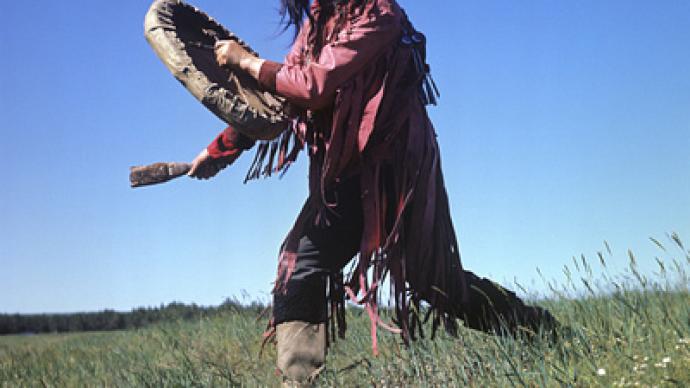My mission is to help in troublesome times – Yakutian shaman

The belief in the power of the shaman is very much a part of the Yakutian way of life. Although there are few shamans left, they are still very important to people in the region.
From healing and protection, to marriages and good harvest – in ancient times shamans were in charge of almost all aspects of life. In the contemporary world they try to adapt to modern times while keeping old traditions alive.“Our ancestors always had very powerful shamans around – the latter protected them, gave them blessings and ensured security and safety in all circumstances – in everyday life, at a hunt, on a journey, and at war,” says Galina Shchadrina, shaman researcher. Shamans claim to act as intermediaries between the spiritual and earthly worlds, relying heavily on nature to get their message across. When Russian Orthodox Christianity moved eastward and later with the Soviet Union, shamanism was banned and those that practiced it were persecuted. Now there are only three recognized shamans living in all of Yakutia, in Russia’s Far East. A shaman sees his role as helping people find faith in the fact that their wishes will be fulfilled and their family relations and conflicts at work will be fixed, explains shaman Leonid Savin. “When a person has this faith, he can do anything. I live in a time of crisis, and my mission is to help people in this troublesome time. Every shaman has his own mission,” he said. One of the biggest current problems for shamans is the conflict between modern technology and spiritual ways, which is especially relevant for Yakutia, where hitching posts with ancient symbols may be standing next to electricity lines. “Real shamans live far way from big cities in small villages, because contemporary cities with computers, cars, cell phones, and the constant rush, distract from true unity with nature and the spirits,” said Savin. Trying to make the best of it all, life is a delicate balancing act for the Yakuts, and thus they are an interesting people, believes Daria Bragina, local resident. “When we are in trouble, we do three different things at the same time – we turn to a shaman, we pray in a church, and we make use of modern medicine,” she told RT. This is a unique way of keeping a tradition that has been a part of Yakutia for centuries.And, as a Yakutian blessing says, “may the Sun protect what it created, may the warmth of the fire in your name protect you and may your three spirits be united – the spirit of the womb, the spirit of air and the spirit of the earth."













